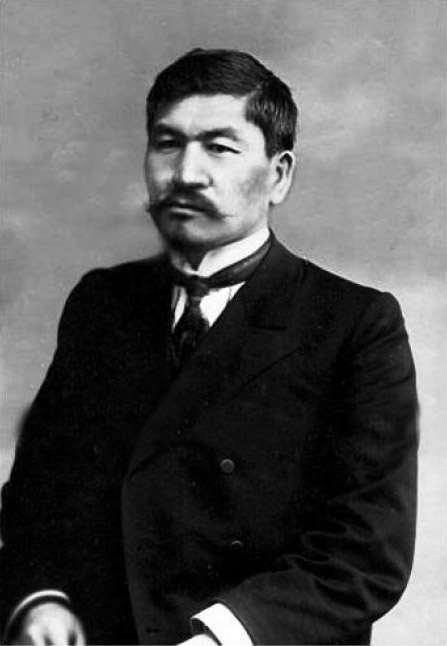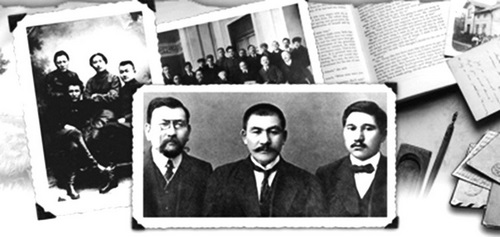
Leader of the Nation

156 years have passed since Alikhan Bukeykhanov, the leader of the nation, who said, "As long as I live, I will never stop serving the Kazakhs" and dedicated his whole life to serving the Kazakh people.

А. Bukeykhanov was born on March 5, 1866 in the village 7 of Tokyrauyn volost of Karkaralinsk uyezd of the former Semipalatinsk region. The chief of the nation came from Tore family, which descended from Genghis Khan's eldest son Zhoshy.
Alikhan's father sent him to madrasah at the age of nine, after which Alikhan on his own will passed to study in three-class school. Then he entered Karkarala three-year institution, from which he graduated with honours. At the age of sixteen, he enrolled in the Omsk Technical School. After graduating from it at the age of twenty, the Steppe General enrolled at the Forestry Institute in St. Petersburg, receiving a letter of recommendation from the governor's office and a scholarship from the Kazakh community. After graduation he came to Omsk and took an active part in the social and political work of the city. Joining the "Narodnaya liberty" party he created a small party group among the Kazakh intelligentsia. From that time he formed himself as a political personality. Thus begins the first step of the leader of the nation.

"Alikhan Bukeykhanov is the leader of Kazakh intelligentsia of the beginning of XX century. Main figure of national liberation movement. This is the man who defined the objectives, goals of the movement, strategic, tactical means of struggle", says Professor Mambet Koigeldy, Doctor of History.
"Why is there a struggle for the language? What is the importance of the Kazakh language? Behind the Kazakh language there is a question of land. Being Kazakhs, we can protect this land only by speaking our mother tongue. These fiery words belong to Alikhan Bukeikhanov, a public figure and statesman and chairman of the Alashorda government.
Alikhan Bukeykhanov shared his personal ambitions and principles about his country and land. Writer, historian Tursyn Zhurtbai describes him as follows:
The first principle is that Alash must become a national-democratic state. For this, first of all, there must be "Land, land and land again". Without land there is no homeland. According to Bukeykhanov's prescription, land should not be given into private ownership, to settlers, until the Kazakh people themselves, relying on science and technology, develop it completely.
The second principle is that all the wealth that is under the ground, above the ground and in the sky Alash should serve the Kazakh people. According to Bukeykhanov, "each Kazakh stone should become a button on a Kazakh's chest".
The third principle - according to Bukeykhanov's plan, every small piece of wool produced on Kazakh soil was to become clothing for the citizens of this state. That is the state was to achieve full economic independence.
The fourth principle was that the national language, religion and mentality should be dominant in the Kazakh state. This was the ideological position.
The fifth principle - the most basic science, including independent science, should be based on national traditions according to the law, and established according to the example of the national-democratic country Japan. The validity of this position of Alash figures testifies that the Japanese nation based on samurai tradition has turned into a single empire in only 20 years.
On the basis of this principle Alikhan Bukeyhan founded the first political organization in the Kazakh history - Alash party. Later, in December, 1917 on kurultai of all Kazakhs the Alash autonomy was declared, and A. Bukeyhan was elected the first chairman of this first Kazakh Republic. Here the word Alash means "Turkish son" (pseudonym) in 1913 in the newspaper "Kazak" was written: "Juchi Khan was popularly called "Alash". This means that 'Alash is the head of the Alash people'.
Bukeykhanov was sentenced to be shot in Moscow in 1937, at the age of 67. The life of the great son of the Great Steppe is the historical and cultural heritage of the country.
Author: Mouldir Adamzhan
Photos: from the press service archive